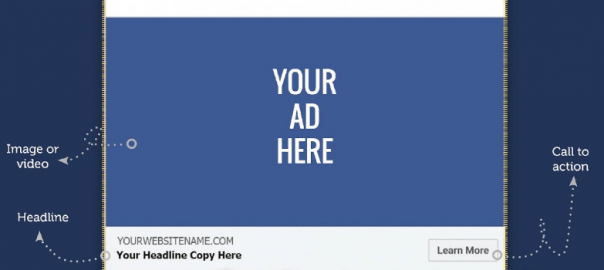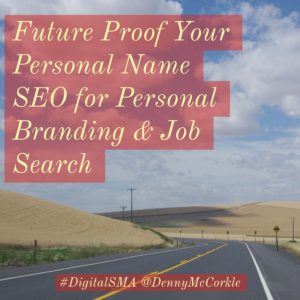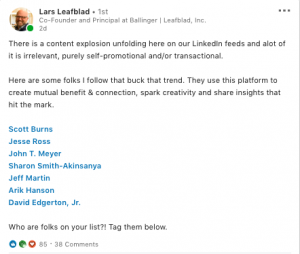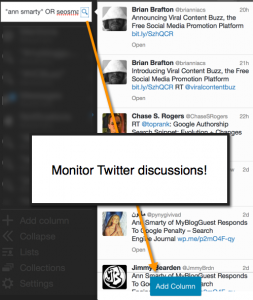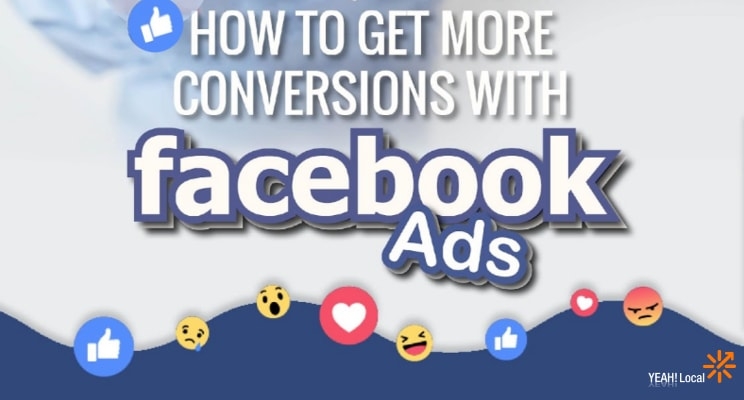
I’m willing to bet you already know a lot about Facebook Ads. Facebook is still the most widely used social media platform with roughly 2.54 billion active daily users.
Because of Facebook’s algorithm, non-paid content from family and friends are given priority in users’ feeds, making Facebook advertising a must for local businesses.
The good news is it’s easy to use Facebook Ads to drive traffic to your website and increase conversions. The key is choosing the right objective and then designing an ad that will help you accomplish it.
Here’s what you need to know.
What is a Facebook Conversion Ad?
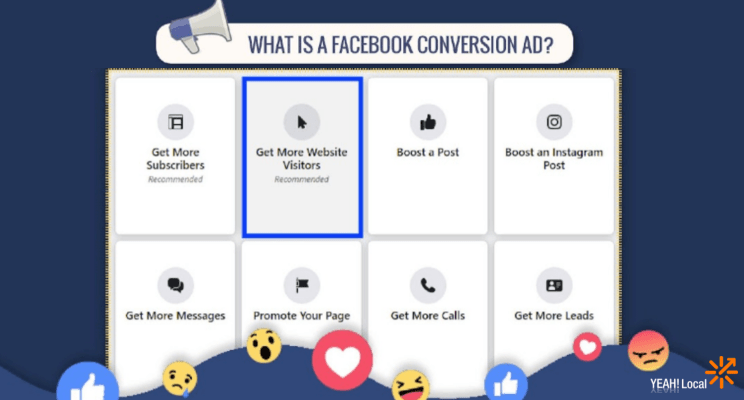
Any time you create an ad on Facebook, you must choose the type of ad you want to run.
The options are:
- Get more website visitors
- Boost a post
- Get more messages
- Promote your page
- Get more calls
- Get more leads
For conversions, you should choose the “Get more website visitors” option. That’s the one that will allow you to advertise to your target audience while enticing them to visit your website with a single click.
How to Choose a Facebook Conversion Objective
While you need to increase traffic to your website to increase your conversions, you also need to choose a conversion objective.
Depending upon the nature of your business and your marketing goals, your conversion objective could be any of the following:
- Opt-ins to build your list
- Opt-ins to generate leads
- Downloads of a lead magnet
- Sales of your products
Whatever objective you specify, Facebook will provide you with a pixel (a tiny snippet of code) to embed in your website to track conversions.
You should choose an objective that aligns with your marketing goals. If your company is B2B, you may want to focus on lead generation. B2C local businesses are more likely to focus on sales and leads.
How to Create an Facebook Ad Set
Once you have chosen an ad objective, you’ll need to create an Ad Set. This is where you’ll decide who you want to see your ad and figure out how to achieve that goal.
In other words, you need to find your audience.
You can select your audience using basic demographics such as age, location, marital status, and income level. You can also use psychographics that target people based on their interests.
For example, if you own a pet supply store, you can target pet owners and people who follow dog and cat-related pages on Facebook.
Keep in mind that a single ad campaign may have multiple ad sets. For example, your campaign might be aimed at increasing sales and you could create ad sets targeting different age groups, genders, or locations.
Creating your ad set also means you’ll need to set a budget. We suggest beginning with a low budget ($ 5 to $ 10 a day). That way, you can collect some data and decide whether you need to revamp your ad or expand your audience.
Anatomy of a Facebook Conversion Ad
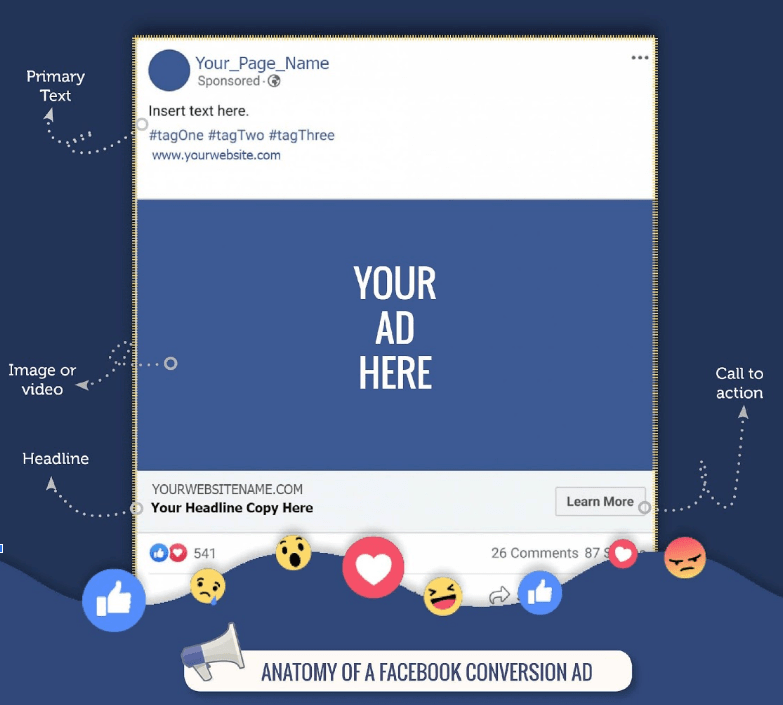
The ad you create will play a significant role in the success of your campaign. A Facebook conversion ad consists of five basic parts.
They are:
- Image or video
- Headline
- Primary text
- Call to action
- Description
Let’s run through the requirements for each.
For your image or video, you need a square graphic with a recommended size of 1080 X 1080 pixels. Videos should be between 15 and 60 seconds long. The image you choose should be eye-catching. Remember, your ad will display in the feed and you don’t want people to scroll past it.
The headline is the next most important part of your ad. You only have about seven words to attract your audience’s attention, so make sure you spend some time on your headline. It should be short and to the point. It’s always great to use words like sale, free, limited time, or anything like that since these terms spur people into action.
The primary text appears beneath the headline and is limited to about 125 characters. You suggest creating longer text, but Facebook will truncate it, so make sure to include your most important content at the beginning.
Your call to action tells your audience what to do next. It should include active verbs such as buy, get, go, apply, contact, and so on. A lot of effective CTAs use “now” as a modifier, so consider something like:
- Apply now
- Buy now
- Contact now
Finally, the description is limited to six to eight words and will display only to users who might find it helpful.
Examples include:
- Free shipping
- Offer ends Tuesday
- Limited time only
It’s essential to think carefully about each element of your ad as you create it.
How to Track the Performance of Your Facebook Conversion Ad
The final step is to track the performance of your Facebook conversion ad using Facebook Ads Reporting.
Your Ads Reporting is linked to your pixel and will tell you how many people have seen your ad, what their demographics are, and whether they clicked through and did what you wanted them to do.
You can use Ads Reporting to create customized reports about the performance of your ads. You’ll be able to see who viewed your ads in any timeframe, what time of day your ads performed the best, and how many people clicked the ad, converted, and more.
Using the data you collect, you can then refine your ads, run tests, and figure out how to improve the quality and performance of your ads to get the results you want. Ads Reporting is free for all Facebook business users.
***************
Facebook Conversion Ads are one of the best tools we know to increase traffic to your website and help local businesses increase sales. The key is to target your ads properly and then create compelling content your audience won’t be able to resist. The leads will follow.
Digital & Social Articles on Business 2 Community
(71)
